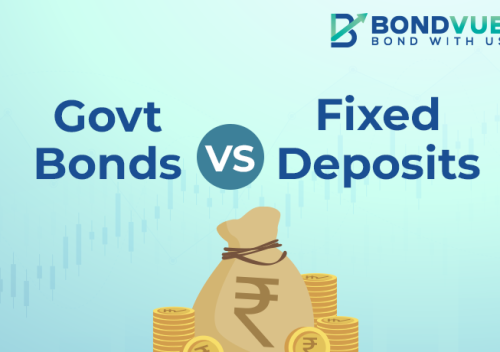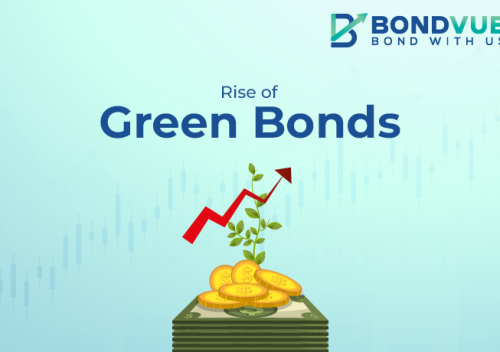Welcome to the BondVue Learning Hub
An engaging educational initiative with a mission to empower individuals to invest with knowledge.
The BondVue Learning Hub offers comprehensive content designed to demystify bonds and instill confidence in bond investments.
Expert
Learning Modules
Module 1: Bonds 101 – An introduction to the world of Bonds
Module 2: How Bonds Work? Understanding Bond Dynamics
Become a bond market expert through the
BondVue Certification Courses
Launching in 2025
Register here to join the waitlist
Video-based Learning
Intro to Bondvue
Bond Terminologies You Need To Know
Glossary

Accrued Interest
Accrued interest refers to the interest that has accumulated on a bond or other fixed-income security since the last interest payment date. It is typically calculated on a daily basis.
Webinars
Interact with industry experts through our specially curated online seminars
Introduction to Bonds – Your Gateway to Investment Success
How Bonds Work
Latest Blogs
5 Reasons why it’s the right time for increased retail participation in corporate bonds
7 Reasons Why Government Bonds Trump Over FDs & Stocks In an Investment Strategy
The Rise of Green Bonds in India – Pioneering Sustainable Investments
Frequently Asked Questions
A bond is an investment product where the investor lends money to the issuer (either a government or a company) for a predetermined period. In return, the issuer agrees to pay the investor a fixed or variable interest rate during the term of the loan and to repay the principal amount when the bond matures.
Bonds are integral to the debt market, serving as a mechanism for various entities to access capital by borrowing from investors. They provide investors with income through regular interest payments, while offering issuers a method to finance projects or operations without diluting ownership.
Key participants include bond issuers (governments, municipalities, corporations), investors (individuals and institutional investors like pension funds and insurance companies), intermediaries (investment banks), credit rating agencies, and regulatory authorities.
The coupon rate is the annual interest rate paid on a bond's face value to the bondholders. It can be fixed or variable, depending on the bond's terms.
The face value, also known as par value, is the amount of money the bondholder receives from the issuer when the bond matures. It's also the basis on which periodic interest payments are calculated.
The debt market is a financial market where participants can issue and trade debt securities, primarily in the form of bonds. It enables governments, municipalities, and corporations to raise funds by selling debt instruments to investors.
Bonds function as loans made by investors to bond issuers. In exchange for the capital, the issuer pays an agreed-upon rate of interest throughout the bond's life and returns the bond's face value to the investor at maturity. For a more detailed explanation, refer to Module 1-3 of the #BV series.
Interest payment frequency refers to how often a bond makes its interest payments. Common frequencies include monthly, semi-annually, and annually.
A credit rating is an assessment of the creditworthiness of a bond issuer, reflecting the likelihood that the issuer will fulfill its debt obligations. Ratings are provided by credit rating agencies and can influence a bond's interest rate and investor demand.
Maturity refers to the date on which the principal amount of a bond is to be paid back to the investor and the issuer's obligation ends.

SUBSCRIBE NOW!
Receive the latest updates on bonds, markets & more
to stay one-step ahead of the curve





